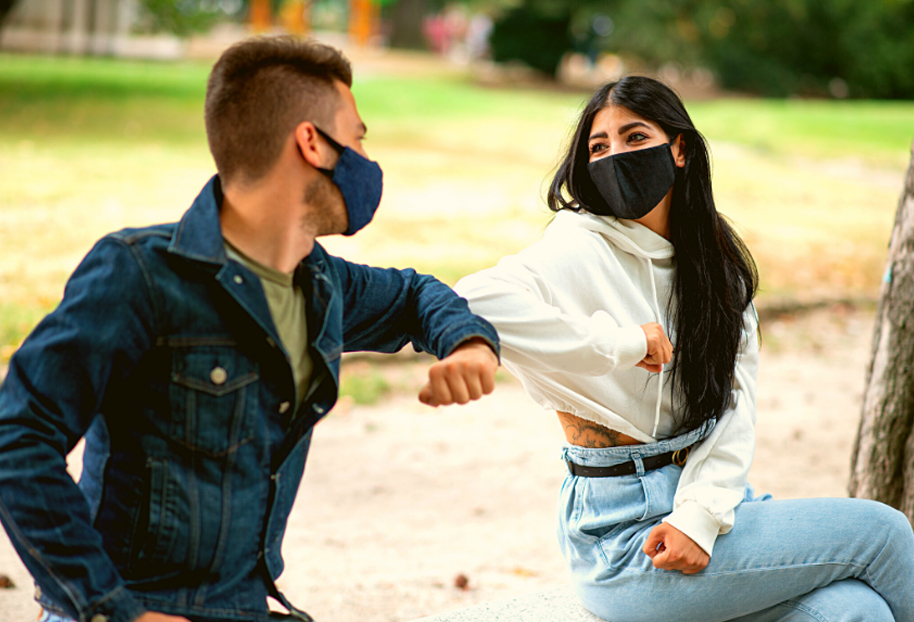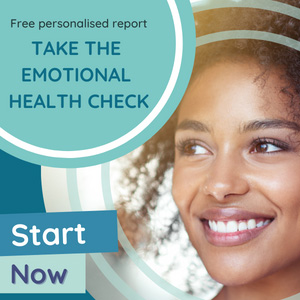Oh no, not another COVID blog! Don't worry, this one isn't about all the changes to work and home life, analysing the latest guidance changes or sharing tips on living with the pandemic. Instead, I just wanted to ask you a very simple question.
Do you feel different?
If you look back just 2 years ago, to before we'd even heard of the word 'COVID', were you the same as you are now? Or have the last 2 years changed you in some way, even if you didn't realise it was happening? I'm willing to bet you have changed in some way, even if it's just a small shift, and that's all thanks to COVID-19, and the way it and the last 2 years have rewired our brains.
The Neuroscience of Social Isolation
One of the biggest impacts of the pandemic was that it forced us into isolation. Stay at home. Don't visit your friends and family. Stay 6 feet away at all times. For over a year. Human beings are social creatures, so this is a very, very long time for us to go without social interaction. And after all that time, it's had an impact on our brains.
2 weeks in isolation, the neuropeptide levels in your brain start to shift and cause an increase in aggressiveness. Growth factors in the brain decrease, and this means the neurones in the sensory and motor areas of the cortex shrink by up to 20%. All of which puts you at higher risk for things like anxiety, depression, brain fog, chronic stress and diminished cognitive abilities, to name just a few. Further isolation above those 2 weeks can cause some very deep changes in brain chemistry, and causes a serious disruption of your nervous system, increasing your risk of heart disease, strokes, high blood pressure, inflammation and even premature death.
The Brain's Reaction to Catching COVID
If you were one of the roughly 380 million people who caught Covid but were lucky enough to recover, there is another thing to consider. New data gathered by the University of Oxford has found that catching COVID-19 can trigger significant differences in the brain. By comparing MRI scans of patients before and after Covid infection, scientists found that the overall size of the brain had shrunk between 0.2 and 2%, and there was a significant loss of grey matter in the olfactory areas, which are linked to smell and memory. Even a mild infection showed similar results, and this is what they believe causes many 'long COVID' symptoms like loss of smell, memory problems, brain fog and difficulty performing complex tasks. And if you had to have oxygen therapy, then you may have a lower grey matter volume in your frontal lobe as well, which can cause a lot of issues. We don't know if these changes are permanent, but the brain is a resilient organ, and the research team were confident that it could heal with time.
So, if you have had COVID and are experiencing some of the long-haul symptoms, it's probably because there have been fundamental changes to your brain. And because these are going to take time to repair, your best option is to learn to adapt. 'Smell training' has proven effective in regaining smell, as it exercises the area of the brain responsible for smell prompting healing. Brain exercises really have never been more important!
Lack of Touch
Another thing we've all struggled with, and many still do is the lack of touch throughout the pandemic. Human beings need touch as a way to bond - so much so that we actually have a network of dedicated nerve fibres in our skin that detect and emotionally respond to the touch of another person. It is quite literally a biological drive that we were deprived of for a long time. These nerves are called CT afferents and are particularly sensitive to a light touch, gentle moving, and a temperature of 32 degrees C, which happens to be human skin temperature. When these nerves are triggered they send signals to your brain's insular cortex, which deals with your emotional equilibrium. It's the bit of the brain that affirms our relationships, social connections and our sense of self. Over time, depriving ourselves of physical touch with other people, whether it's a handshake, a gentle touch on the arm, a hug or a kiss on the cheek, can leave lasting scars on your sense of self, the closeness you feel with others and how you feel socially. This is one of the reasons many of us feel apprehensive and even a little cold when meeting with people even now restrictions have been lifted. You can read more about this fascinating nervous system here.
Trauma Responses
The other thing we need to remember is that COVID-19 has also been an incredibly traumatic thing, and that trauma has stretched over a long period of time. Living through a once in a lifetime event like this is always going to leave its marks on you, and for most people the years living in relative isolation, fear, emotional distress and misinformation have triggered the brain's trauma responses. This is known as 'mass trauma' - something that tends to happen after large scale and global events such as wars or terrorist attacks. Or pandemics. It's a product of living in a consistent state of uncertainty, with tragic or horrible events happening around you.
So, your brain is also likely in PTSD mode, especially if you're a healthcare worker, as well as struggling with chronic stress. You might have been feeling more on guard or unsafe, have an increase in negative thoughts and feelings, headaches, nausea, anxiety, irritability or have problems with sleep and concentration. All of these are classic signs of PTSD, and if they resonate with you, then now is the time to take action. The health risks of untreated trauma range from decreased overall physical health to a higher risk of suicide, self-harm and substance abuse.
So yes, COVID-19 has changed our brains in a lot of ways. But human beings are resilient and adaptable, so while we might be living with the fallout of COVID-19 for a while yet, we will bounce back. In the meantime, the best thing you can do is to be kind to yourself and seek support if you need it. Hypnotherapy can be a great way to hep you overcome the trauma of COVID-19. If you would like to know more, just get in touch with me today.
Feel free to book an initial chat or get in touch to ask for advice or ask questions







